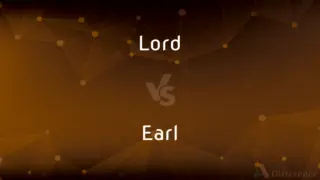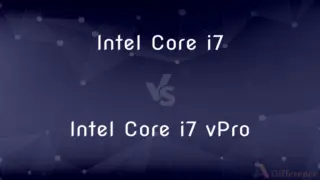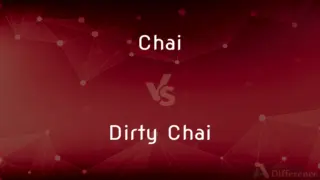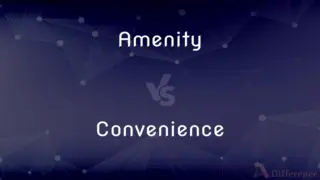Personal Unconscious vs. Collective Unconscious — What's the Difference?
By Tayyaba Rehman — Published on January 1, 2024
Personal Unconscious contains an individual's memories and ideas, including those that are suppressed or forgotten. Collective Unconscious refers to the part of the unconscious mind with inherited, universal themes shared among all humans.

Difference Between Personal Unconscious and Collective Unconscious
Table of Contents
ADVERTISEMENT
Key Differences
Personal Unconscious is a term introduced by Carl Jung, referring to all information that is present within an individual's mind but not currently conscious. This includes forgotten or suppressed memories, thoughts, and experiences unique to the individual. Collective Unconscious, on the other hand, also a Jungian concept, refers to the part of the unconscious mind that is derived from ancestral memory and experience, shared among all humans.
The Personal Unconscious is comprised of experiences from a person's lifetime that are not at the forefront of conscious thought. It contains complex feelings and thoughts that have been either consciously or subconsciously suppressed. In contrast, the Collective Unconscious contains archetypes, which are inherent predispositions to experience and symbolize human behaviors and experiences universally.
Personal Unconscious is unique to each individual, shaped by their personal experiences and cultural background. It influences an individual’s behaviors and emotional responses in a personal context. The Collective Unconscious, however, transcends individual experiences, consisting of universal psychic structures common to all.
An individual can gain insight into their Personal Unconscious through therapy, introspection, and dreams. The Collective Unconscious is less accessible and more abstract, often explored through the study of myths, art, religion, and dreams on a broader, more universal scale.
Personal Unconscious can be seen as a personal psychic footprint of an individual’s life, whereas the Collective Unconscious represents a deeper layer of the unconscious shared across humanity, reflecting the collective experiences and evolution of the human species.
ADVERTISEMENT
Comparison Chart
Definition
Individual memories, suppressed thoughts, experiences.
Inherited, universal psychic structures.
Origin
Derived from a person's life experiences.
Inherited from ancestral experiences and evolution.
Content
Unique to each individual.
Universal themes and archetypes shared among all humans.
Influence on Behavior
Influences based on personal context and experiences.
Influences based on inherent human predispositions.
Accessibility
Accessible through personal introspection and therapy.
Explored through universal symbols in myths, art, religion.
Compare with Definitions
Personal Unconscious
Shaped by personal history and experiences.
Her personal unconscious was filled with complex emotions from her upbringing.
Collective Unconscious
Underlying universal layer of the human psyche.
The fear of the dark, present in many cultures, stems from the collective unconscious.
Personal Unconscious
Stores individual experiences not in immediate consciousness.
Dream analysis revealed aspects of his personal unconscious affecting his decisions.
Collective Unconscious
Transcends personal experiences, encompassing universal human motifs.
The concept of motherhood in various societies is shaped by the collective unconscious.
Personal Unconscious
Includes forgotten or suppressed personal experiences.
His personal unconscious contained memories of past failures influencing his self-esteem.
Collective Unconscious
Universal psychic inheritance shared among humans.
The archetype of the 'hero' in his dream was an element of the collective unconscious.
Personal Unconscious
Contains an individual's repressed memories and thoughts.
His fear of water was traced back to a forgotten childhood incident in his personal unconscious.
Collective Unconscious
Explored through universal symbols and myths.
His artwork was influenced by archetypes from the collective unconscious.
Personal Unconscious
Unique psychological content of an individual.
Through therapy, she explored her personal unconscious to understand her anxieties.
Collective Unconscious
Contains shared human experiences and archetypes.
Myths from different cultures reflect similar themes from the collective unconscious.
Common Curiosities
What is an example of the Collective Unconscious?
Universal archetypes like 'the mother', 'the hero', or 'the trickster'.
What is the Personal Unconscious?
A part of the mind containing personal memories and experiences not currently conscious.
What defines the Collective Unconscious?
It's a universal level of the psyche, containing inherited experiences of the human species.
How does Personal Unconscious affect behavior?
It influences behavior based on individual past experiences and suppressed memories.
Can the Personal Unconscious be accessed?
Yes, through methods like psychotherapy, introspection, and dream analysis.
How do archetypes fit into these concepts?
Archetypes are part of the Collective Unconscious, representing universal human motifs.
Is Personal Unconscious unique to each person?
Yes, it's formed by individual experiences and memories.
How is the Collective Unconscious different from culture?
It's innate and universal, while culture is learned and varies between societies.
Are dreams a part of the Personal or Collective Unconscious?
They can contain elements of both, with personal experiences and universal symbols.
Can Personal Unconscious change over time?
Yes, as new experiences and memories are formed.
Do all humans share the same Collective Unconscious?
Yes, it's a common psychic substrate inherent in every human being.
How do Personal Unconscious and Collective Unconscious interact?
The Personal Unconscious is shaped by individual experiences, while the Collective Unconscious provides a shared foundation.
Can understanding these concepts help in personal development?
Yes, understanding both can lead to deeper self-awareness and comprehension of human behavior.
What role does the Collective Unconscious play in psychology?
It helps explain shared human behaviors and psychic phenomena across different cultures.
Is the Collective Unconscious a scientifically proven concept?
It's more of a theoretical construct in analytical psychology, with varying degrees of acceptance.
Share Your Discovery

Previous Comparison
4G vs. 5G
Next Comparison
Naruto vs. SasukeAuthor Spotlight
Written by
Tayyaba RehmanTayyaba Rehman is a distinguished writer, currently serving as a primary contributor to askdifference.com. As a researcher in semantics and etymology, Tayyaba's passion for the complexity of languages and their distinctions has found a perfect home on the platform. Tayyaba delves into the intricacies of language, distinguishing between commonly confused words and phrases, thereby providing clarity for readers worldwide.
















































